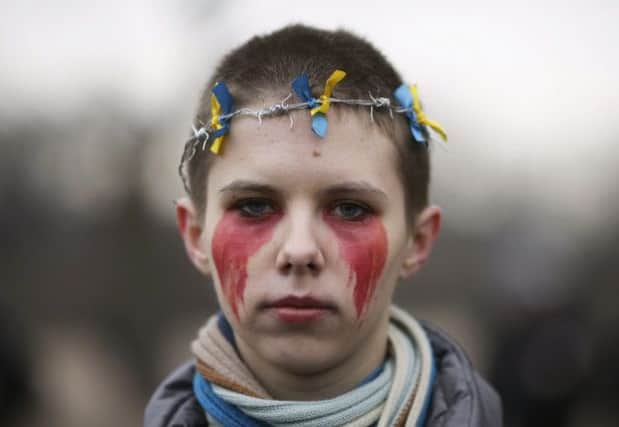Matthew Day: Referendum may see Crimea in Russian hands


THE speed with which the Ukraine crisis shifts and evolves is both alarming and a nightmare for anybody trying to seek a solution to one of the biggest threats to European peace and security since the end of the Cold War.
Just when the situation in Crimea looked to have settled into a temporary, if tense, stalemate that gave people a chance to draw breath and take stock, the decision by the disputed region’s parliament to rush through a referendum on union with Russia ramped up the tension once again.
Advertisement
Hide AdAdvertisement
Hide AdThe vote, if it goes ahead in little over a week, will take place in a dangerous environment laced with military and political pressures, and the result could take the crisis to another level.
The Crimean parliament – and probably the Kremlin – would not have even countenanced holding a referendum unless it was certain of a “yes” vote.
A “yes” would strengthen the position of the Kremlin because it could then say something along the lines of “the people have voted, and we have to respect their choice,” and use this as an excuse to not only tighten its grip on Crimea but possibly extricate it once and for all from Kiev’s control.
This could pave the way for Crimea following the path of the breakaway republic of Transnistria.
Unknown to many, this tiny slither of land in eastern Moldova populated by Russian speakers, could provide the template for Moscow’s Crimean plan.
Transnistria declared independence from Moldovan control after a brief war in 1992. Although this declaration went unrecognised in the world and Transnistria remains officially part of Moldova it has its own government and the Moldovan authorities exercise no control over its errant region. Significantly the republic is a close and loyal ally of Moscow and acts as a buttress to Western influence.
In fact Moscow still maintains peace-keeping troops in Transnistria, which help maintain a low-cost stalemate that has served the Kremlin well for over 20 years.
But any vote in Crimea will be considered illegal by both Kiev and the West, and thus could increase the chance of conflict.
Advertisement
Hide AdAdvertisement
Hide AdThe problem for the two, however, is that they exercise little leverage over the Kremlin, and, consequently, events in Crimea. Any military action by Ukraine’s fragile new government would not only draw it into conflict with far superior armed forces but could also destabilise even more its Russian-speaking regions in the east, and give Putin an excuse to try and swipe more Ukrainian territory on the same spurious grounds of “protecting Russian citizens”.
Kiev is also in the midst of a financial crisis that could force it into bankruptcy, and unfortunately for Ukraine it is Moscow that has the power to push it over the edge or pull it back. This was made clear by Gazprom, Russia’s state-owned energy company, which warned Ukraine the gas supply might be turned off unless it settles debts to the tune of £1.13 billion.
Any disruption to gas supplies to Ukraine would also affect European Union states to the west, some of which are heavily dependent on Russia for their energy needs.
The Ukrainian government has also said it needs £21bn in funding to get it through this year and into 2015 without going bust. That is a lot of money by any standards, and probably beyond the EU’s means given the still brittle state of the European economy. In turn, Europe’s inability to rein in Russia or at least make it show some form of restraint has become a depressing feature of the Ukraine crisis.
Days have passed since Russian troops began to take control of Crimea but it was only on Friday that the EU issued an “ultimatum” to Moscow that unless it withdrew its forces, began negotiations and granted access to international monitors, sanctions would kick in.
These could include freezing talks on visa facilitations, breaking off bilateral dialogues and freezing the assets of selected Russians.
Most of the measures have the potential to annoy the Kremlin, but do little more than that. Russia has little need of the EU’s grace and favour and so can afford to do what it wants to do with little impunity.
Asset freezes could hurt the Kremlin but only if applied with zeal. Attack the bank accounts of the wealthy oligarchs that not only profit from Putin’s rule but also help maintain it, and there might be a chance to influence affairs.
Advertisement
Hide AdAdvertisement
Hide AdOr, at the very least, help the West regain some of the moral high-ground it has thrown away by happily banking the dirty fortunes of Russia’s ruling elite.
Alas the willingness to do that appears to be lacking.